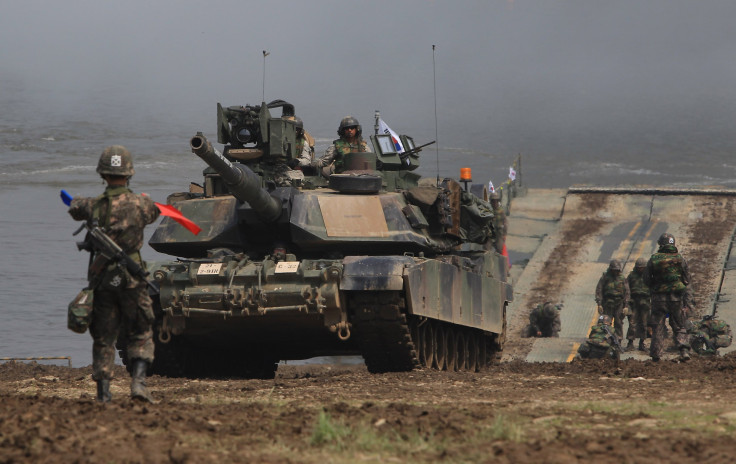US-South Korea 'Higher-Level' Military Exercises Continue Amid Reduced Drills

South Korea and the United States' "higher-level" military exercises continued off the Korean Peninsula despite scaling back or scrapping several joint military drills, since a historic summit between North Korean leader Kim Jong Un and President Donald Trump in Singapore in June. A top U.S. general said in a recent interview that Washington and Seoul were exploring ways to back ongoing diplomacy to denuclearize North Korea.
"What we're doing is we're continuing to do higher level (exercises) ... Battalion and below exercises on the peninsula is fine. And that's working very well at that small unit level. And then above that, we're doing the higher-level exercises off the peninsula," Gen. Robert Brown, the head of U.S. Army Pacific Command, told Defense News in an interview.
"We just did some in Hawaii, (at) Joint Base Lewis-McChord and Washington state. Even (in) Alaska we worked some scenarios, and we invite the ROKs to that. Obviously, not as many can come," he added, referring to the acronym for South Korea's official name, the Republic of Korea.
Last week, U.S. Secretary of Defense James Mattis said the springtime Foal Eagle exercise with South Korea would be "reduced in scope" and that it was being "reorganized a bit" to keep it at a level that would not harm diplomacy. The allies also decided to suspend the Vigilant Ace air exercise, which was originally scheduled for December.
On Monday, Brown also said U.S. bombers were no longer conducting flights over South Korea, a decision made in an attempt to help continue dialogue with Pyongyang and keep the nuclear-armed country on a denuclearization track.
"As we're going through the diplomatic aspect, we don't want to actually do something that's going to derail the diplomatic negotiations," Brown said. "So that's part of the reason why we're not doing (flights) over Korea."
Since 2014, the U.S. Air Force has kept B-1Bs, B-52s and B-2s on the U.S. territory of Guam as part of its so-called "Continuous Bomber Presence Mission." The bombers routinely conducted flights over the region, often with partners that include Japan, South Korea and Australia. The move was part of training and a show of strong military presence against North Korea.
While U.S. and South Korea are making efforts to reduce its military exercises, North Korea last week criticized Seoul for conducting military drills — such as the "anti-infiltration drill" and the “Hoguk military exercise” — by calling them “anti-national crime."
In a commentary, North's state-run newspaper Minju Joson said these drills gravely violated the Panmunjom declaration and the September Pyongyang Joint Declaration. It said that while South Korean military claimed the drills had “nothing to do with inter-Korean agreements" and were of “defensive nature,” those comments were a way to disguise its “sinister intention for confrontation.”
During the interview Monday, Brown stressed the importance of the exercises, saying: "If you don't exercise, it's kind of like preparing a team to go to the Super Bowl and you never practice or you never play a game. That wouldn't be very good... You want to play against the best competition. You want to work together so you're a well-organized, well-knit, close-cut team, and that's what we need."
In June, Kim agreed to work toward denuclearization and peace on the Korean peninsula if the U.S. and South Korea suspended their joint military drills and exercises.
© Copyright IBTimes 2025. All rights reserved.





















